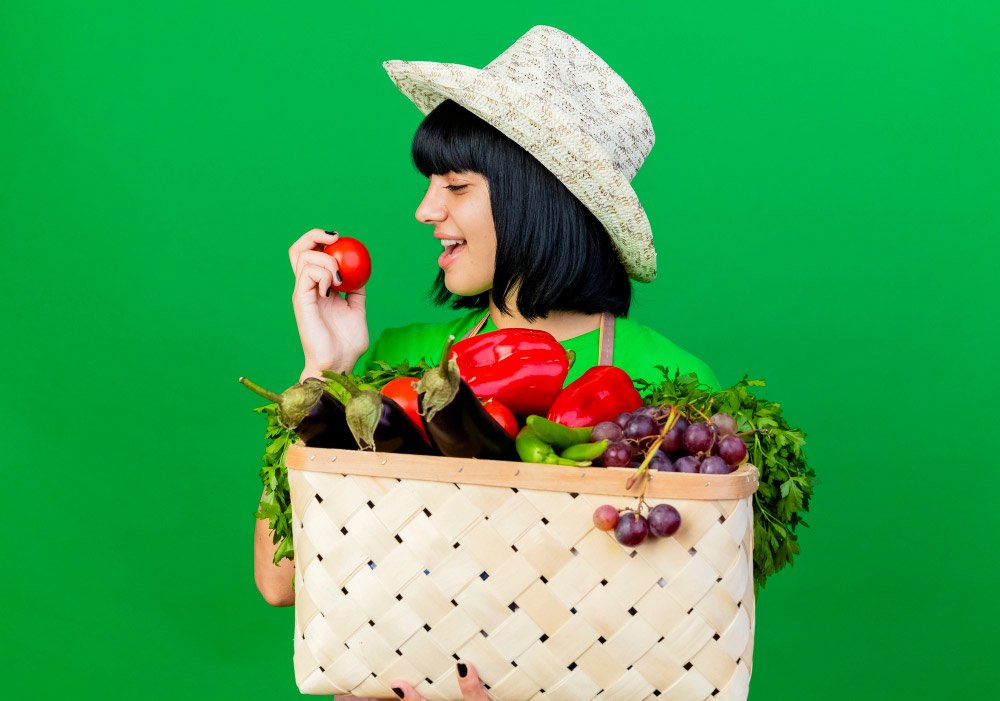Eating healthy and getting your daily dose of essential vitamins and minerals is a great way to stay healthy. But when you find yourself having to throw away rotten fruit and vegetables that you’ve only just bought, it can feel like all your efforts have gone to waste. Fortunately, there are some simple tips and tricks that can help you make your produce last longer — so you don’t have to keep throwing food away or buying more than you need.
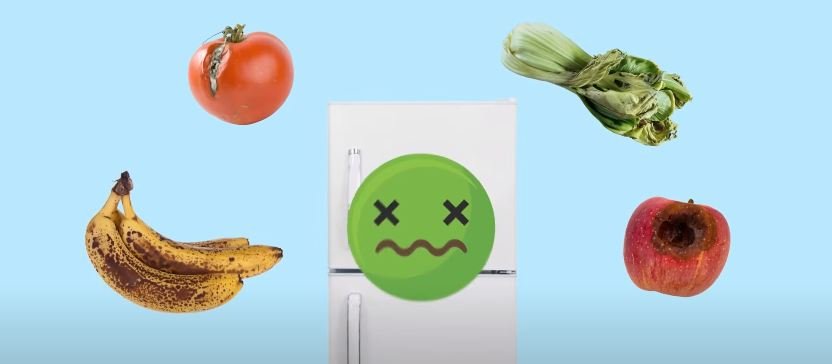
In this article, we’ll be exploring the best ways for keeping fruits and vegetables fresh and how to reduce food waste in the process.
19 Incredible Tips for Keeping Fruits and Vegetables Fresh
1. You must store fruits and vegetables separately to prevent ethylene gas from accelerating ripening.
2. Keep produce in a cool, dry place, as high humidity and warm temperatures can cause spoilage.
3. Store fruits and vegetables in the proper storage containers such as perforated plastic bags or airtight containers.
4. Please do not wash fruits and vegetables until ready to use to prevent moisture buildup.
5. Use produce before it goes bad by planning meals around items that will spoil soonest.
6. Keep an eye out for mold and rot, and remove spoiled items promptly to prevent contamination of other produce.
7. Use a damp cloth to clean produce instead of running it under water to remove dirt and debris.
8. Store citrus fruits in crisper drawer in fridge.
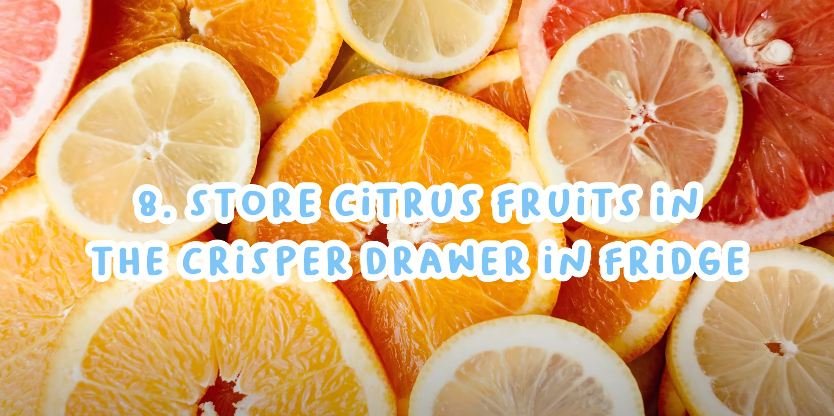
9. Keep tomatoes at room temperature until fully ripe to preserve their flavor and texture.
10. Store potatoes and onions in a cool, dark, and dry place to prevent sprouting.
11. Use a vegetable crisper or humidity-controlled drawer in the refrigerator to store produce.
12. Keep berries in the refrigerator to extend their shelf life.
13. Store apples and pears separately as they give off different types of ethylene gas.
14. Keep cucumbers in the refrigerator to prevent them from becoming mushy.
15. Keep avocados in a paper bag with an apple or banana to speed up ripening.
16. Keep asparagus in a jar of water in the refrigerator, similar to cut flowers.
17. Use the “first in, first out” method to rotate produce and use the oldest items first.
18. Keep herbs in a jar of water, similar to asparagus, and cover with a plastic bag to keep them fresh.
19. Use potatoes with apples. As the ethylene gas produced by apples prevent potatoes from sprouting.

Best containers to store vegetables in fridge
There are a few different types of containers that work well for storing vegetables in the fridge. One option is to use plastic storage bags. Another option is to use airtight plastic or glass containers which helps in keeping fruits and vegetables fresh.
Plastic storage bags
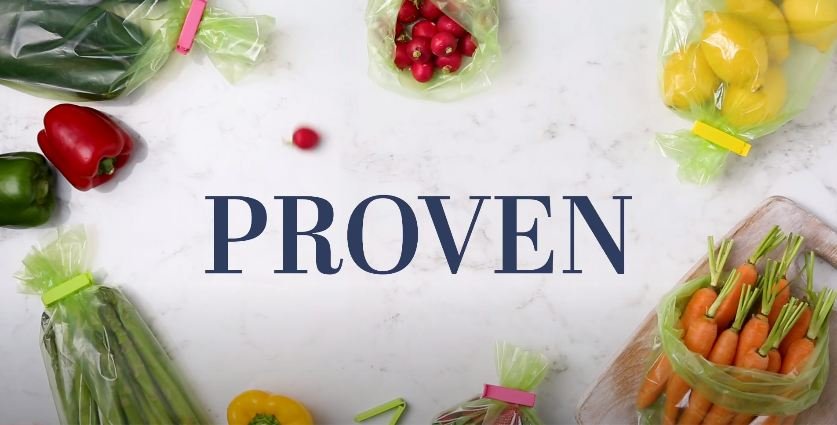
Plastic storage bags are bags made of plastic material that are used to store and transport items. They are commonly used to store food, clothing, and personal items. These bags will keep your vegetables fresh and prevent them from drying out. They are available in a variety of sizes and can have different features such as zip-locks, handles, and reinforced bottoms. Some plastic storage bags are reusable, while others are designed for single use. They are widely used but have negative environmental impact, especially if not disposed of properly.
Airtight plastic or glass containers
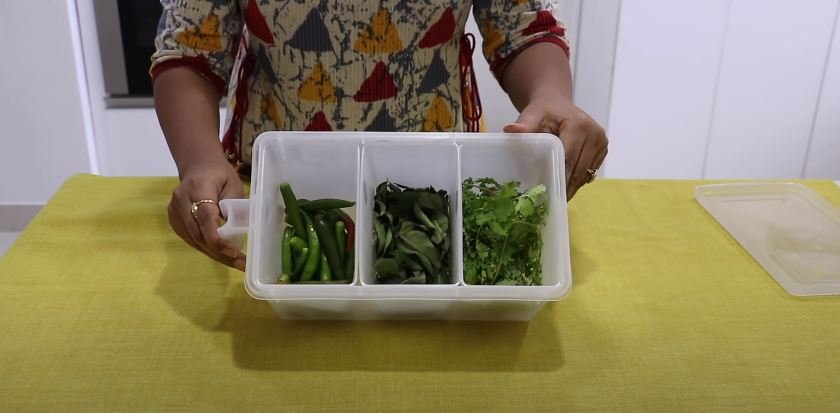
Airtight plastic or glass containers are storage containers that are designed to keep fruits and vegetables fresh for a longer period of time by preventing air from entering the container. These containers can help to prolong the shelf life of fruits and vegetables by slowing down the process of decay and preventing the growth of bacteria and mold. These containers will also keep your vegetables fresh and help to prevent them from going bad.
Plastic containers are lightweight and come in a variety of sizes and shapes, they are also more affordable than glass. But they can be damaged easily and not as durable as glass.
Glass containers are heavier and more fragile than plastic, but they are more durable and resistant to scratches and stains. They also do not contain any chemicals that could potentially leach into food.
Feedback from recipe to cook:
Both types of containers are suitable for storing fruits and vegetables in the refrigerator, but glass is more suitable for storing food in the pantry or freezer.
Containers to keep fruit fresh longer
If you’re looking for ways to make your fruit and vegetables last longer, one of the best things you can do is invest in some good quality storage containers. There are a lot of different options out there, so it’s important to find the ones that will work best for the types of produce you have.
For example, if you have fragile berries or grapes, you’ll want to get containers that have compartments with small holes in them so that the fruit can breathe. On the other hand, firmer fruits and vegetables like apples and carrots can be stored in regular Tupperware-type containers.
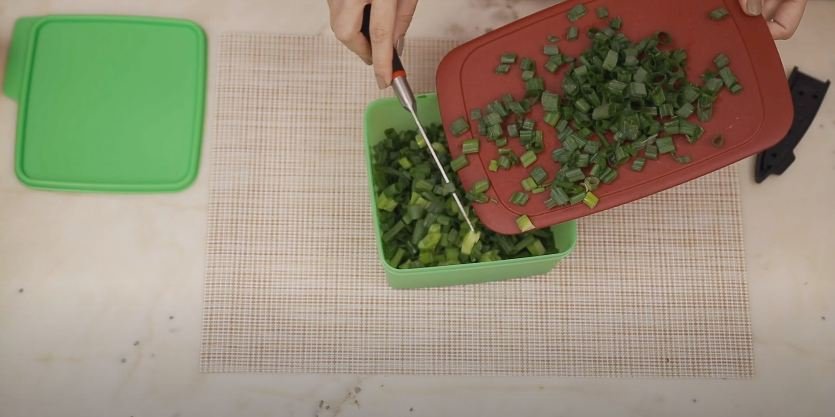
You should also make sure to wash your produce before storing it, as this will help remove any dirt or bacteria that could cause it to spoil more quickly. And finally, be sure to check on your fruits and vegetables regularly and use up anything that’s starting to look a little bit past its prime – this will help prevent waste and keep your kitchen stocked with fresh, delicious produce.
Keeping Fruits and Vegetables Fresh
Fruits and vegetables are essential to our health, but not all of them need to be stored in the refrigerator. To help you out, this article will provide a breakdown of fruits and veggies you should refrigerate and those that can be kept at room temperature. So get ready for some fresh food knowledge that will keep your produce lasting longer!
Fruits and vegetables that should be refrigerated include:
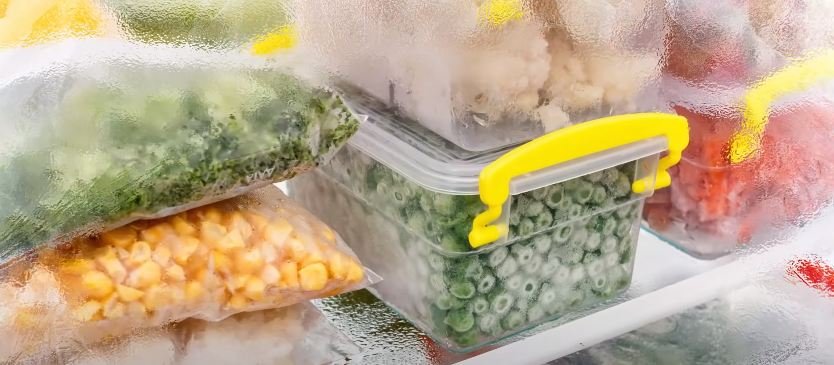
Top fruits and veggies that are refrigerate in order to keep it fresh are given below as follows;
Berries (strawberries, blueberries, raspberries, blackberries)
Berries such as strawberries, blueberries, raspberries, and blackberries are delicate fruits that can easily spoil if not stored properly. Here are some tips for storing berries to make them last longer
Grapes
Grapes are a delicate fruit that can easily spoil if not stored properly. Do not wash grapes until ready to eat as excess moisture can cause them to spoil faster. Store grapes in the refrigerator in a plastic bag with small holes to allow for air circulation. Grapes can be frozen for later use, but they should be washed and dried thoroughly before freezing.
Leafy greens (lettuce, spinach, kale, arugula)
Leafy greens such as lettuce, spinach, kale, and arugula should be stored in the refrigerator. The cool temperature helps to keep the greens fresh and crisp for a longer period of time. It’s best to store them in a plastic bag or container with a damp paper towel to maintain moisture and prevent wilting.
Cucumbers
Cucumbers are best stored in the refrigerator to keep them fresh for longer. The cool temperature slows down the ripening process, which can cause cucumbers to become mushy and spoil quickly. It’s also important to keep them dry and in a well-ventilated container to prevent moisture buildup and mold growth.
Carrots
Carrots can be stored in the refrigerator, but it’s not necessary. Carrots can be stored in a cool, dry place such as a root cellar or pantry. If stored in the refrigerator, they should be placed in a plastic bag with holes to allow for air circulation. The moisture and low temperature of the refrigerator can cause the carrots to become limp and lose their crispness.
Celery
Celery should be stored in the refrigerator. The cool temperature helps to keep the celery crisp and fresh for a longer period of time. It’s important to wrap the celery in foil or plastic wrap or place it in a sealed container to maintain its moisture and prevent it from drying out. Avoid storing celery near fruits or vegetables that give off ethylene gas, as this can cause the celery to wilt and become bitter.
Broccoli
Broccoli should be refrigerated in order to keep it fresh for longer. It should be stored in a plastic bag with a slightly open top to allow for air circulation. It is best to use it within a week for optimal freshness and flavor.
Asparagus
Asparagus is a perennial vegetable that belongs to the lily family. It is native to most of Europe, northern Africa, and western Asia. Asparagus is known for its delicate flavor and is often eaten as a side dish. It should be stored in a plastic bag
Peas
it is recommended to refrigerate peas in order to prolong their freshness. They should be stored in an airtight container or a plastic bag and will last for up to a week when refrigerated.
Green beans
Green beans should be stored in the refrigerator to maintain their freshness and prolong their shelf life. They should be placed in a perforated plastic bag or wrapped in a damp paper towel before being placed in the crisper drawer of the refrigerator.
Herbs
It depends on the type of herb and how you plan to use it. Some herbs, like basil, should be kept at room temperature and away from direct sunlight. Others, like parsley and cilantro, can be stored in the refrigerator to prolong their freshness.
Fruits and vegetables that do not need to be refrigerated include:
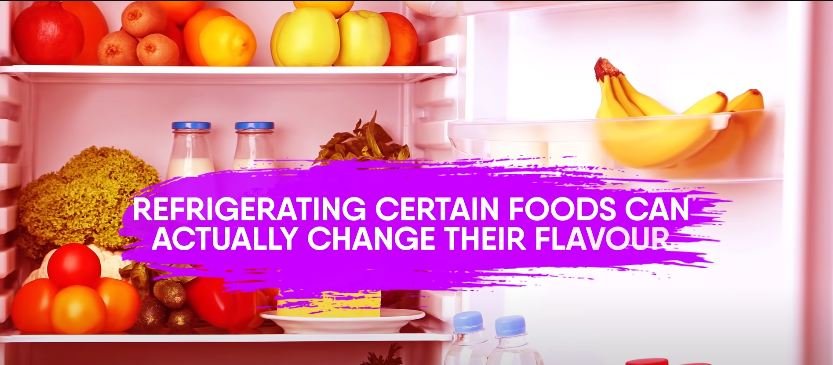
Some fruits and vegetables that do not need to be refrigerated include:
It’s very important to note that some fruits and vegetables may not need refrigeration but will last longer if stored in the refrigerator. Also, the storage conditions may change depending on how ripe the fruits and vegetables are when you buy them, how long you plan to keep them, and the humidity and temperature of your storage area. In addition to that once some fruits and vegetables are cut or peeled, they should be stored in the refrigerator.
You may also love How much water should an adult drink per day
